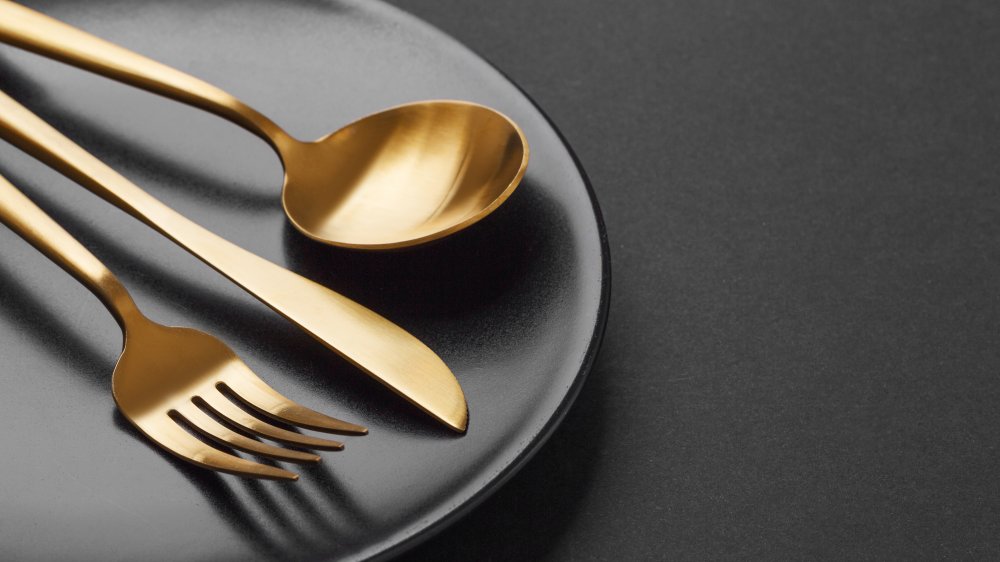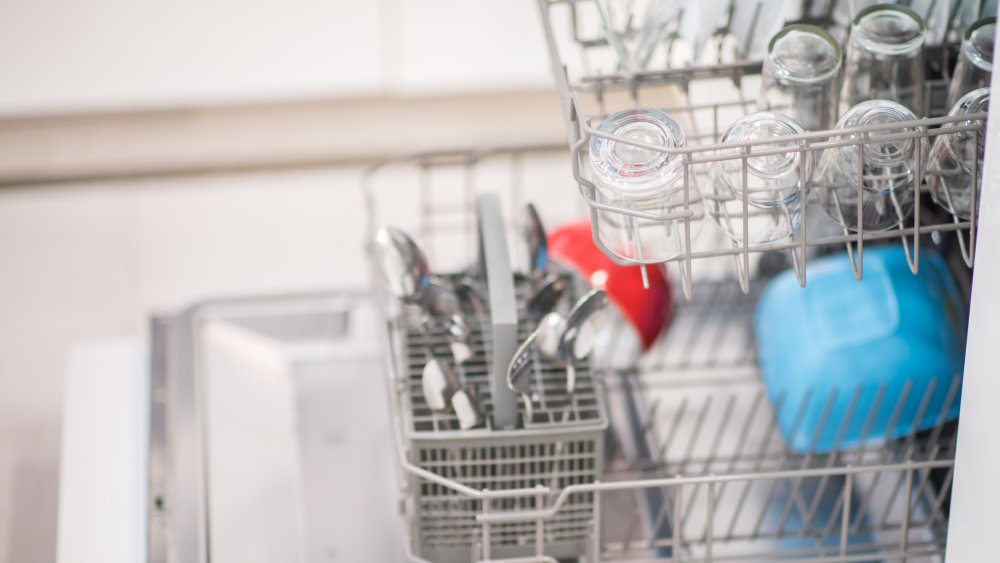Here's How Dirty Restaurant Silverware Really Is
They may not be on the list of a restaurant's dirtiest spots — that dubious honor belongs to doorknobs, toilet floors, menus, and salt and pepper shakers (via Fox News). But that doesn't mean that we should be giving restaurant spoons, forks, and knives a free pass, because neither hand nor machine washing can get tableware as clean as we'd like (or need) it to be.
Researchers at the Ohio State University mixed difficult-to-wash substances like cream cheese and reduced-fat milk, along with a dash each of norovirus (MNV-1), E coli, and listeria, all of which cause different types of stomach disorders (via Women's Health). The germy mixture was then smeared on plates, forks and drinking glasses, before attempts to clean the contaminated tableware were made, both with a mechanical washer and by hand. While both washing methods were able to remove the E coli and listeria (the dishwasher was more effective), neither washing method reduced the amount of norovirus particles. Norovirus is particularly dangerous, because it is behind 90 percent of gastroenteritis.
We may not be doing enough to get rid of disease-causing viruses on silverware
About the study's findings that the dishes weren't as clean as most people would hope, Ohio State Department of Food Science and Technology associate professor Melvin Pascall said, "We know that when public food establishments follow the cleaning protocols, they do a very good job at getting rid of bacteria. Now we can see that the protocols are less effective at removing and killing viruses — and this may help explain why there are still so many illnesses caused by cross-contaminated food."
Still, researchers say you can't blame restaurants for neglecting their jobs, because the dairy products used in the experiment could have the ability to protect germs from both cleaning products and from heat. "Proper sanitation and handling remain the single biggest factor that can prevent cross-contamination of food and dishware at food service establishments. However, it appears that we need to identify better agents or methods to significantly reduce the presence of norovirus and work to update the protocols," Pascall said.
It's important to eat at restaurants that have good cleaning habits
The good news is that customers are pretty good at spotting (and calling out) dirty silverware. Consumer Reports surveyed more than 1,000 restaurant goers, and said 76 percent of diners were willing to speak to wait staff about dirty cutlery. Perhaps this is a sign that dirty flatware is too commonplace in restaurants (via WTOP).
So, should we stop eating out or start taking our own cutlery with us wherever we go? The truth is, most likely we won't get sick if we come in contact with germs on a piece of silverware due to our bodies' built-in defense systems (via Bustle). But it still make sense to patronize establishments that appear clean — check out the tables, floors, and maybe even the bathroom. Are they clean? That's a sign the restaurant staff is at least doing their best to stave off infection on your fork.


